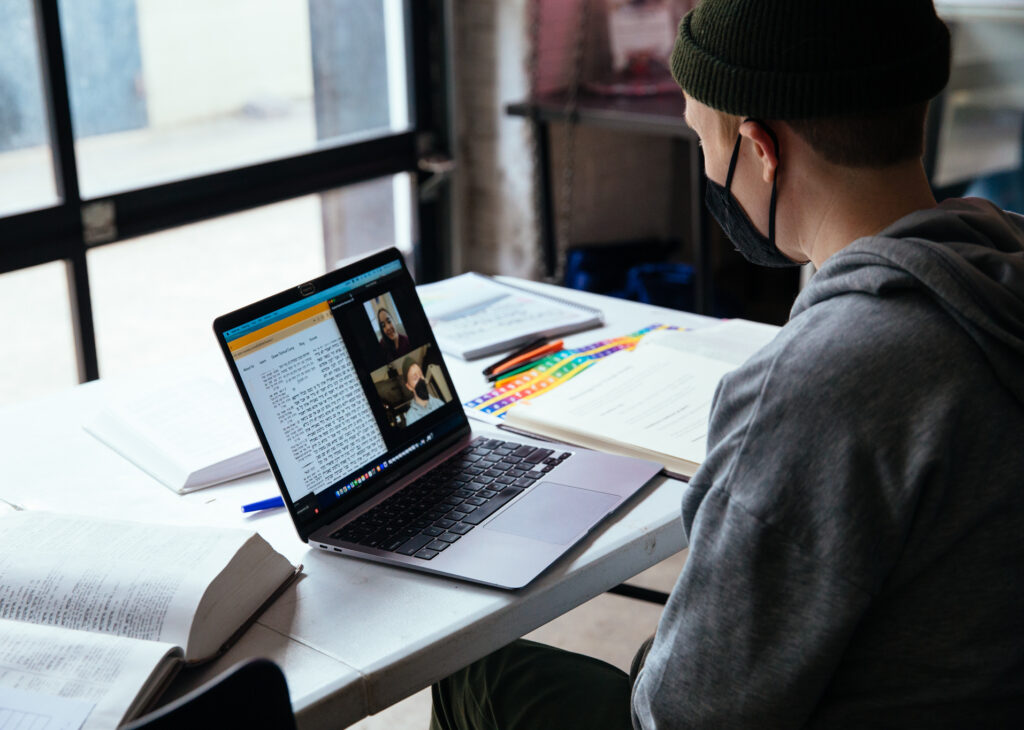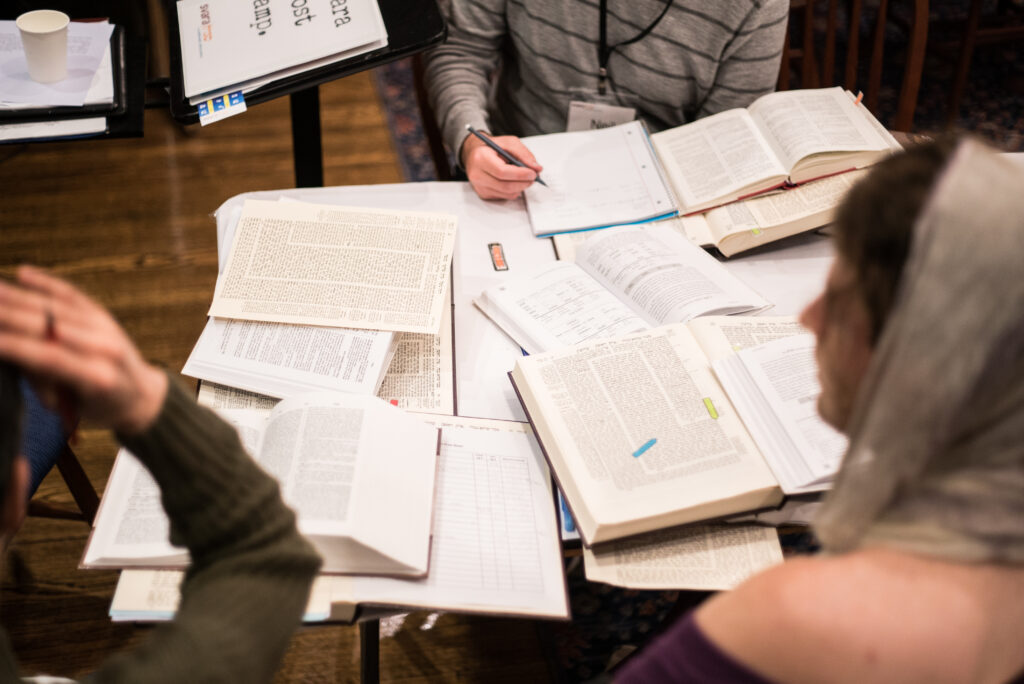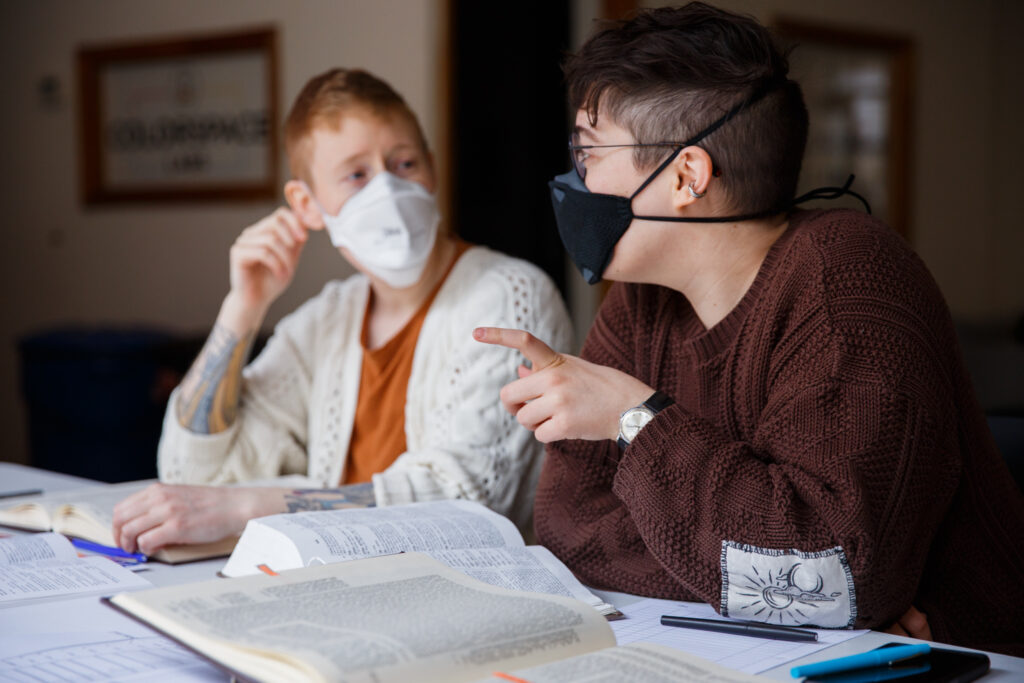…שַׁמַּאי אוֹמֵר עֲשֵׂה תוֹרָתְךָ קֶבַע אֱמֹר מְעַט וַעֲשֵׂה הַרְבֵּה
Shammai used to say: Make your learning fixed. Speak little, do much… (Masechet Avot 1:15)
Last Friday, SVARA’s Daily Mishnah Collective celebrated the completion (for now!) of our learning of Chapter 1 of Masechet Avot, where we found and explored this teaching from our sage Shammai, calling upon us to take action. And while we were learning it, extraordinary, inspiring, Black-led uprisings were taking place throughout our country and around the world.
SPEAK LITTLE.
Shammai uplifts the importance of doing more than we say—both doing more than we say we will do (perhaps under-promising and over-delivering) and also doing more than we talk. It’s not that Shammai intends to erase the power of speech here. We know that words are essential, that words create worlds. G!d famously speaks the world into being, and the rabbinic project is one of world-building through creative speech, giving us the “Oral Torah,” a Torah that is dreamed up and shaped by words. And we all know first-hand the pain of silence when our comrades fail to speak out about systemic oppression and harm done in our society to those like us. Speaking up is important, and is indeed a holy action.
But what we do is more important than what we say. We are, thank G!d, witnessing an uprising, one in which white & non-Black folks must act, right now, to do the sacred work of realizing our commitments to Black liberation. In this moment when many of us are exploring how to shape our behaviors and actions to align with the vision of liberation that we are all so desperately seeking, we have a timely reminder from our teacher Shammai about how this work happens. It happens when we do it.
DO MUCH.
For fellow white and non-Black People of Color, we’d like to offer, in the spirit of our sage Shammai, an invitation to act more than we speak. We must make statements, we must speak up, absolutely. And as we speak up and speak out, our words need to be matched and exceeded by concrete actions that are being prophetically laid out for us, clearly and beautifully, by visionary and courageous Black leaders from within and beyond the Jewish community. Here’s what’s being asked of us:
- Join an organization working to defund the police.
In the article As a Jew of Color, I Need More People in My Community to Speak Up, published in Ha’aretz last week, Yehuda Webster, of JFREJ and Ammud: The Jews of Color Torah Academy, shared:
“A lot of well-intentioned white people call, saying: ‘Come speak to my organization, come speak to my group,’” Webster recounts. “My question for some is: ‘Where were you before? Where have you been this whole time black people have been dying in the streets?’“ Perhaps for some, it comes from their guilt,” he posits. “They feel if they had a black man come speak, that’s it, they did something. That’s not what we need right now.” Webster explains that groups, including within the Jewish community, need to understand that “ally is a verb, not a noun.” He then issues a plea: “I need you to join an organization that fights for defunding the police and defending black lives – that’s what you can do, and you can do it starting today.
Not sure how to join an organization that fights for “defunding of police and defending black lives?” Find your local chapter of SURJ: Showing Up for Racial Justice, Faith in Action, or Bend the Arc.
- Get in on the weekend of actions, in person or digitally, in observation of Juneteenth.
Six Nineteen, a project organized by The Movement for Black Lives, grounds this weekend of actions with purpose:
Juneteenth invites us into celebration, action, and affirmation on “a day that honors Black freedom and Black resistance, and centers Black people’s unique contribution to the struggle for justice in the U.S. This Juneteenth is a rare moment for our communities to proclaim in one voice that Black Lives Matter, and that we won’t tolerate anything less than justice for all our people.”
“To honor our ancestors and to lay a path to freedom for future generations, we are calling for the sixnineteen mobilization on Juneteenth weekend, June 19–21, 2020. We invite you to join us by taking action from home, in your community, or in Washington, D.C.
The millions of us are here to remind lawmakers that we are bigger than monied interests, including police unions and right-wing think tanks. We know the path away from this disaster. After years of anti-Black violence and animosity for Black life, we demand the defunding of the police and an investment in Black communities.”
Find or host an action, in person or digitally, here and stay up to date with The Movement for Black Lives here.
SVARA’S COMMITMENT
As an organization built on the ethos of celebrating and lifting up the voices of those on the margins, both in the Jewish community and beyond, we are committed to racial justice and to supporting and amplifying the voices of People of Color and Black Jews.
Racial justice, gender justice, and disability justice are core pillars of our organization. Informed by our conversations with Black Jewish leaders, and also by the intentions set out in Not Free to Desist: An Open Letter from Black Jews, Non-Black Jews of Color, and our allies to Jewish Federations, Foundations, Organizations, and Initiatives, we are answering the call to action which this moment of national uprising presents.
These benchmarks represent our first set of commitments to hold ourselves accountable in the pursuit of justice in the coming year:
- We will create a protocol for addressing racist acts and speech if and when they arise in our programs or through interpersonal interactions.
- We will create a safety and security plan with built-in alternatives to policing that we will put into action when we gather again in person.
- We will continue to actively recruit and subsidize the participation of Black Jews and non-Black Jews of Color in our programs.
- We will review and update our hiring practices to ensure that they are anti-racist and inclusive.
- We will form an anti-racism working group, tasked with reviewing SVARA’s culture, policies, and programming.
There is much more work to be done. We are here for it. This is just the beginning.
May we, inspired equally by our sage Shammai and the powerful visions of Black movement leaders, listen, follow, and act. And may we do it now.






